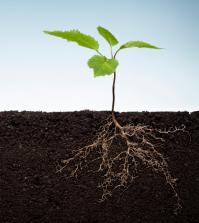- Mothering in a Fractured TimePosted 1 day ago
- Beneath the Surface: Revealing Life’s Goals nurtured from a Spiritual SeedPosted 4 days ago
- How We Kept Marital Peace while Traveling the World with Our KidsPosted 2 weeks ago
- How I Coped with Feeling Lost in a Changing SocietyPosted 2 weeks ago
- The Unexpected Liberation of a Butt DialPosted 1 month ago
- Why is France making abortion a constitutional right?Posted 2 months ago
How Judgment is a Trap of Your Ego

Written by Ed and Dep Shapiro
One Christmas, when we were living in Brighton, England, we volunteered at a church that regularly feeds the homeless and needy at that time of year. But it was more than the hungry ones who got fed that day.
After we happily dished out large helpings of turkey, mashed potatoes and gravy, followed by pudding and custard, we watched most of the recipients light up a cigarette and/or take a large swig of alcohol.
Feeling somewhat virtuous, it seemed like a perfect time and place to suggest they change their habits, so we talked to the pastor about doing this. He told us off quite clearly: “They got a good friend in Johnny Walker, maybe their only one. They get 20 friends in every pack of cigarettes. If alcohol and tobacco is what these folks need to get through the day then, in my mind, that is to be grateful for, not to be made wrong.”
It was important for us to remember this: how to respect the choices we all make, whether we agree with them or not; how to be completely non-judgmental; and to realize how elitist we can easily become.
Judgment keeps us locked into an unending dialogue within our own minds of who said what to whom, of what someone did or didn’t do, of anyone or anything we disagree with. Judgment is the ego’s defense as it makes me right and others wrong: by pointing out someone’s weakness or mistakes we think that we appear right in comparison.
The nature of ego is to make us believe our me-centered self is better than others. But in the Buddhist teachings, there is a description of a huge net reaching in all directions with a multifaceted mirror-like jewel at each of the many knots, every jewel reflecting all the others. It is called the Jeweled Net of Indra and represents our interconnectedness: not a single jewel can be separated from or is independent of any other; take one away and the net becomes unusable.
In other words, we are interrelated, interdependent, inseparable, and interconnected all at the same time, part of an integrated whole, not separate from the trees, elephants, owls, our neighbors, the people in South Africa or a tiger in India. We all breathe the same air, in and out.
So every time we judge or find fault with another we are reinforcing a sense of separateness and isolation, we are allowing ego to create a gap between us, to make one better than the other.
When we first met the Dalai Lama it was in his residence in northern India. We were waiting in a room off a wide terrace. Ed walked out to admire the view (snow-capped Himalayas) when a monk further along the terrace started beckoning for us to come. We thought he would take us to our meeting, but as we drew close we realized that this simple monk was the Dalai Lama. We went to prostrate at his feet but he made us stand, saying “No, no, we are all equal here.”
No judgment equals genuine equality and connectivity.
 Award-Winning Authors Ed and Deb of Be The Change, How Meditation can Transform You and the World, are mindfulness, meditation and yoga experts. Deb’s new novel is: Merging: Women in Love — what happens when you fall in love with the least likely person of the least likely gender? – and she’s the author of Your Body Speaks Your Mind, now in 19 languages.
Award-Winning Authors Ed and Deb of Be The Change, How Meditation can Transform You and the World, are mindfulness, meditation and yoga experts. Deb’s new novel is: Merging: Women in Love — what happens when you fall in love with the least likely person of the least likely gender? – and she’s the author of Your Body Speaks Your Mind, now in 19 languages.
They have three meditation CDs. See more at EdandDebShapiro.com







